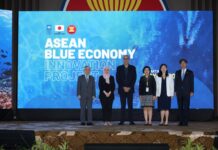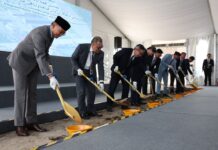Brunei’s oil and gas industry – the backbone of its economy – will continue to operate with modified business continuity plans (BCP) admist a growing second wave of COVID-19 cases.
Second Minister of Finance and Economy and Minister at the Prime Minister’s Office YB Dato Seri Setia Dr Hj Mohd Amin Liew Abdullah said it is imperative for the nation’s economy that the upstream and downstream sectors – which contribute more than 54% to GDP – continue productivity.
As of August 15, coronavirus clusters affecting oil and gas operations are at TOTAL with 20 cases, Brunei Shell Petroleum’s (BSP) headquarters with nine cases and the country’s largest offshore platform Champion 7 with seven cases.
“They have already operationalized their BCP, so this will ensure the safety of their employees, and at the same time keep their operation ongoing,” said the minister at the COVID-19 press conference on August 13.
“With the BCP in put in place the impact would not be too significant (but) all this depends on what’s going to happen with the COVID-19 situation over the coming weeks.”
The arrival of foreign workers for highly specialized work in the oil and gas sector is needed periodically throughout the year, he added, for maintenance and turnaround operations.
“We must also understand that our economy depends a lot on foreign workers as well. These are quite sophisticated work where we require specialists to come in but they are not here for throughout the year; they come to do this maintenance and then they go,” he said.
The government will nevertheless restrict travelers from countries with significant ongoing outbreaks, recently banning travelers from India and Indonesia. Authorities are also continuously monitoring standard operating procedures for inbound arrivals.
YB Dato Dr Hj Mohd Amin added that the agriculture sector is also dependent on foreign workers. Insufficient manpower could also hamper local production, leading to increased imports and subsequently higher prices.
The number of foreigners in Brunei dropped from 94,200 in 2019 to 83,900 last year, according to the Department of Economic Planning and Statistics. Foreigners left the country when their contracts expired, but new foreign worker arrivals have since been tightened.












